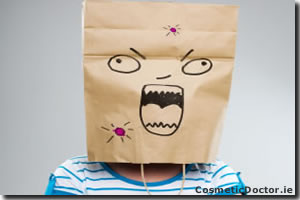Exfoliation means the removal of dead skin cells, and it’s an important element of skin care. As we age, our natural rate of skin cell turnover, where cells slough off and are replaced, slows down considerably, so we need to help the process along.
There are many ways to exfoliate; physical (mechanically) or chemically, and Cosmetic Doctor has some excellent treatments that will have you looking dewy and youthful before the summer.
Exfoliation Solves Skin Issues
Appropriate methods of exfoliation can help you address a host of skin issues, from acne to pigmentation. It’s a simple concept-get rid of the damaged surface layer to allow new, healthy skin cells to come to the fore.
Blemished Skin
Rather than drying out acne-blemished skin with harsh products, which only exacerbates the problem of sebum over-production, a therapeutic exfoliation treatment will effectively eliminate the damaged layer without drying the skin or starting a new cycle of breakouts.
There are many options, from medical microdermabrasion to chemical peels. It depends on your skin so Cosmetic Doctor will assess your individual needs and recommend the appropriate treatment.
Marks on the Skin
Marks from old acne breakouts, acne scarring, or hyperpigmentation marks all respond well to exfoliation as the damaged surface tissue is removed. The result is a much more evenly toned skin, minimising the appearance of scars and marks.
Hyperpigmentation marks are brownish spots that come from age, pregnancy, hormonal changes, and genetics. These spots tend to become more apparent and darker as the skin ages. Exfoliation is beneficial for breaking up the pigmented cells to allow them to fade.
Cosmetic Doctor has specific treatment options for all kinds of skin marks, and will direct you to the most effective option for your skin.
Clogged Pores
Clogged pores aren’t infected blemishes, but rather blackheads, small whiteheads, and little clogged bumps on the skin, often on the forehead. By removing the dryer surface layer of skin cells you free up the pores to release trapped oil, allowing your skin to breath and rebalance itself.
How Should One Exfoliate?
There are two types of exfoliants. First, a “chemical” or “acid” exfoliant does the work for you. You apply it, leave it on the skin, and it works to dissolve the dry skin cells. These exfoliants include ingredients such as Glycolic Acid, AHAs and BHA, and enzymes such as Pumpkin, Papaya, and Pineapple.
Second, a “physical” exfoliant uses mechanical means such as micro crystals to smooth away the dead surface. It’s important to use very fine particles on your skin, as commercial scrubs can be quite harsh or have sharp edges that actually damage the skin, leaving it red and irritated.
Call Cosmetic Doctor on 01 685 3100 or see www.cosmeticdoctor.ie for details on all available methods of exfoliation and skin care products.


